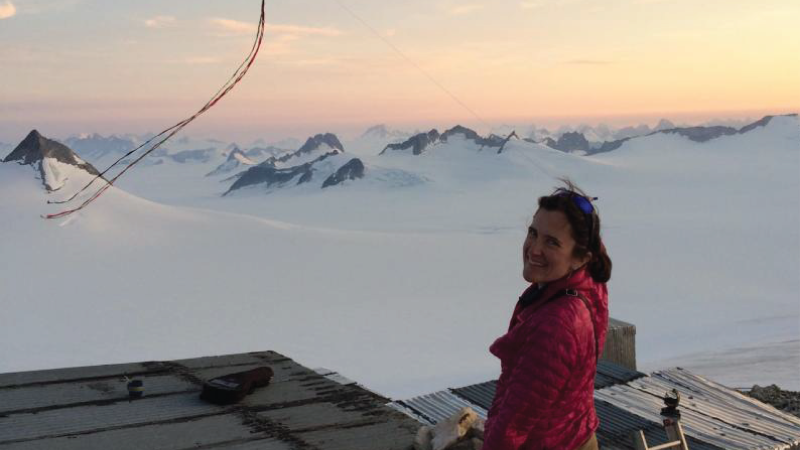Sarah Fortner

Sarah Fortner earned her MS & PhD in Earth Sciences from SES and now works as a professor at Wittenberg University.
"Geoscience only informs equitable and just outcomes if we connect and build from that connection."
How do you feel that your experience, specifically as an SES/geology student at OSU, prepared you for your career or life in general?
My mentors were excellent, especially my MS & PhD advisor Dr. Berry Lyons and my committee including SES faculty Drs. Anne Carey and Lonnie Thompson and Geography Faculty Dr. Bryan Mark and the Golden Beaker of our research group, Kathy Welch. They motivated me, challenged me, & connected me to ideas and network-building strategies that still inspire me today. Now, I am proud to be faculty at Wittenberg where I model what I have learned from them and build student, faculty, and advocacy networks to improve community outcomes.
What is your favorite memory as a student?
Going to the Dry Valleys with the McMurdo Long Term Ecological Research Program! But I also have three wonderful memories from my time on campus. First, I met my husband, Trey Fortner, in graduate school. Dr. Gunter Faure introduced us and then Trey and I competed in several of his classes. Second, I did poorly on one of Professor Faure’s exams and so he had me come to his office and work through the problems. This instilled in me the value of prioritizing student learning, he knew I would need to know the questions I missed on my research. Third, I remember my advisor incorporating the personal and professional interests of ALL of his students into how he taught his geochemistry course. He would seamlessly pull out information on sports, hobbies, or research interests and build them into his class. This approach complemented our supportive research group meetings that helped build a sense of our shared work together.
What advice do you have for current and future students?
As you work, think about how you can build opportunities for others or expand the perspectives considered. Geoscience only informs equitable and just outcomes if we connect and build from that connection.
